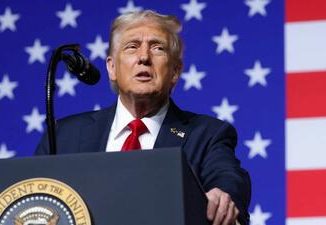
FBI Salt Lake City releases photos of a person of interest in Charlie Kirk’s assassination. (FBI Salt Lake City)
Published September 12, 2025
In a striking demonstration of personal diplomacy, Belarusian President Alexander Lukashenko released 52 political prisoners on September 11, 2025, following a direct appeal from former U.S. President Donald Trump. The move marks the largest release under Lukashenko’s 30-year rule and signals a potential opening in U.S.-Belarus relations.
Direct Diplomacy in Action
The release of 52 political prisoners from Belarus underscores the power of direct, personal diplomacy in achieving tangible results. Former President Donald Trump, bypassing traditional bureaucratic channels, sent his personal envoy, lawyer John Coale, to Minsk with a letter urging President Alexander Lukashenko to free political detainees. The approach exemplifies a hands-on, transactional style of diplomacy—one that prioritizes outcomes over protocol.
During the meetings in Minsk, Lukashenko responded positively to the appeal, acknowledging the effort and expressing a willingness to consider further negotiations. This engagement led to the immediate release of prisoners, including nine journalists and 14 foreign nationals from European countries such as Lithuania, Latvia, Poland, France, the UK, and Germany. The freed individuals were largely nearing the end of their sentences, yet their release was accelerated through this direct intervention.
In addition to humanitarian outcomes, the negotiation included a strategic element: the United States agreed to ease certain sanctions on Belarus’s national airline, Belavia, allowing it to maintain and acquire parts for its fleet. This arrangement demonstrates a pragmatic, results-oriented approach, where leverage is used to secure meaningful concessions while avoiding unnecessary escalation.
The success of this operation illustrates a broader principle: diplomacy is not just about long-term negotiations and multilateral agreements—it can also be driven by decisive, personal engagement that achieves concrete results quickly. For right-leaning observers, this episode reinforces the effectiveness of a leadership style that combines bold initiative, strategic leverage, and a focus on actionable outcomes.
Results Over Rhetoric
The Belarus prisoner release highlights the importance of prioritizing concrete results over ideological or performative statements. While human rights organizations have rightly noted that over 1,000 political prisoners remain incarcerated in Belarus, the immediate impact of freeing 52 detainees—including journalists and foreign nationals—represents a significant step forward.
From a right-leaning perspective, this episode underscores the value of pragmatic, transactional diplomacy. Rather than engaging in endless debate or symbolic condemnations, the Trump-led initiative produced measurable outcomes: lives improved, international tensions eased, and a potential diplomatic channel opened with Minsk. The negotiation also leveraged economic incentives, such as easing sanctions on Belavia, demonstrating that strategic incentives can achieve what moral appeals alone cannot.
Critics may focus on the limitations—the forced exile of some prisoners, or the smaller-than-requested number of releases—but the core takeaway remains clear: decisive action and personal engagement can accomplish meaningful results. The Belarus case reinforces a broader principle in international relations: achieving tangible victories often requires prioritizing pragmatic solutions over ideological purity, and leadership willing to act boldly rather than simply talk.
 Implications
Implications
1. Trump’s Diplomatic Influence Highlighted
-
The release underscores a narrative that former President Donald Trump can wield substantial personal influence in international diplomacy.
-
Right-leaning audiences may view this as validation of Trump-style deal-making: direct, results-oriented, and outside conventional diplomatic channels.
-
Framing: “Trump delivers where career diplomats may fail,” emphasizing personal leadership over bureaucratic negotiation.
2. Sanctions as Leverage, Not Punishment
-
The U.S. easing sanctions on Belarus’s airline in exchange for the release demonstrates a transactional approach.
-
Right-leaning interpretations often support the idea that sanctions should achieve tangible outcomes, not simply punish foreign governments for political virtue-signaling.
-
This supports a pragmatic, results-first foreign policy model over purely ideological or humanitarian interventions.
3. Critique of ‘Left-Wing Human Rights Framing’
-
Some prisoners were forced into exile rather than allowed to return home, which left-leaning narratives may frame as humanitarian failure.
-
Right-leaning commentary could frame this as acceptable realpolitik: diplomacy often involves compromise, and the primary goal—prisoner release—was achieved.
-
Emphasis: “Not all human rights victories require ideological perfection.”
4. Counter to Establishment Media Narratives
-
Coverage by mainstream Western media often emphasizes human rights shortcomings or criticizes Trump’s role.
-
Right-leaning audiences might view the outcome as proof that traditional media undervalues tangible wins in favor of ideological purity or partisan framing.
-
Framing: “Media ignores effective action in favor of narrative-bias.”
5. Potential for U.S.-Belarus Strategic Cooperation
-
The easing of sanctions and direct engagement could open channels for U.S.-Belarus relations that bypass EU-heavy influence.
-
Right-leaning perspectives may favor bilateral deals over multilateral EU-driven diplomacy, reinforcing national interest and sovereignty-first foreign policy.
-
Framing: “America-first diplomacy achieves concrete results.”
 Overall Takeaway:
Overall Takeaway:
The recent release of 52 political prisoners from Belarus underscores the impact of bold, results-oriented diplomacy. By leveraging direct engagement and pragmatic negotiations, President Donald Trump’s personal intervention achieved tangible outcomes that bureaucratic channels often fail to deliver. While critics focus on the limitations and compromises involved, the core achievement—a significant reduction in political imprisonment and the opening of dialogue with Minsk—demonstrates the effectiveness of an America-first, transaction-based approach to international relations. For right-leaning observers, this episode reinforces the principle that decisive leadership, strategic leverage, and personal diplomacy can advance U.S. interests and uphold human dignity abroad.
SOURCES: THE GATEWAY PUNDIT – A WIN FOR DIPLOMACY: Belarus’ Lukashenko Releases 52 Prisoners After an Appeal From Trump and Visit of US Envoy John Coale (VIDEOS)
REUTERS – Belarus frees 52 prisoners after Trump appeal, US eases some sanctions on Minsk
IFJ – Belarus: 9 journalists freed among 52 political prisoners





Be the first to comment